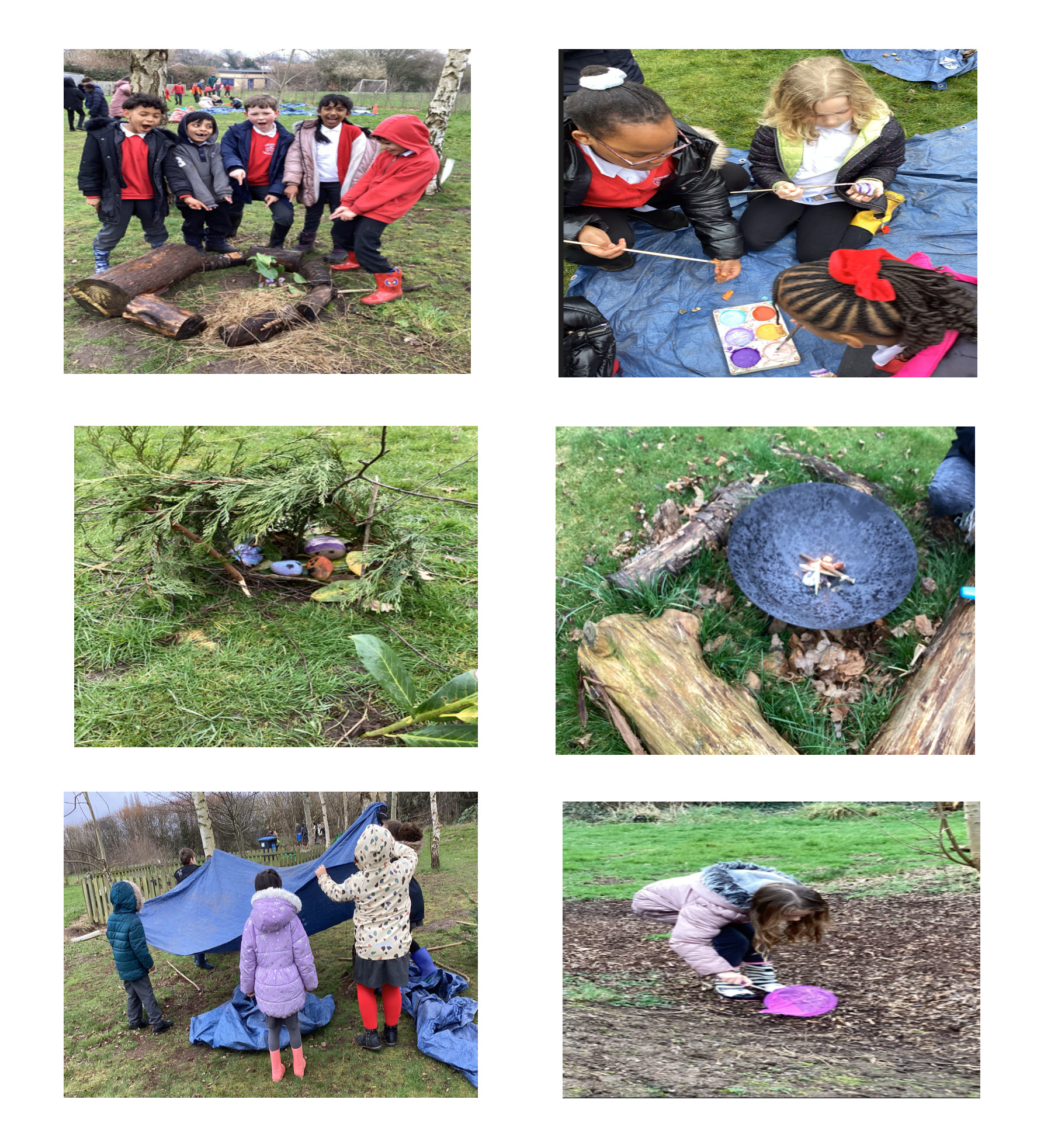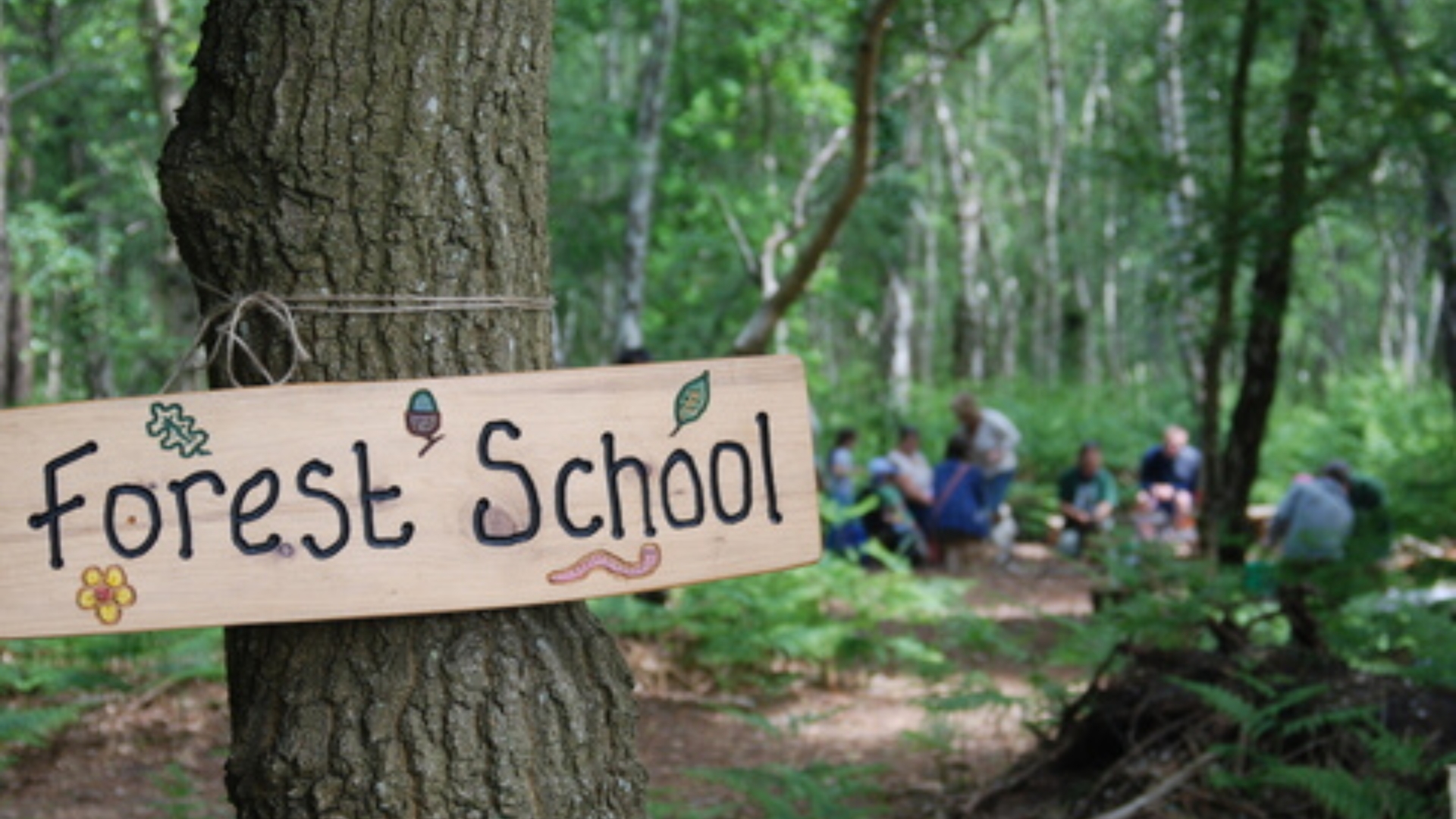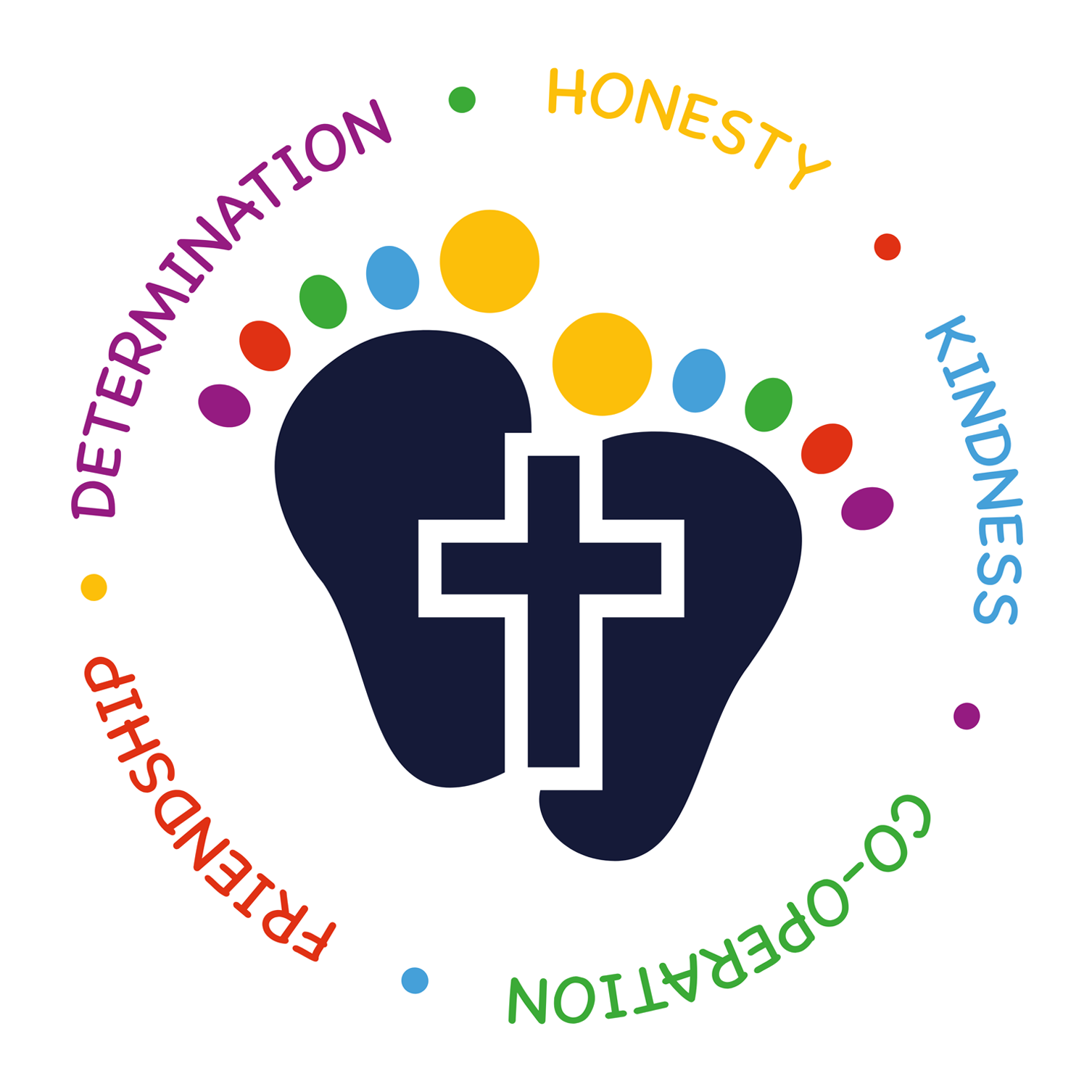Our Learning
Forest School
At St Barnabas, Forest School is a much-loved part of the curriculum where children have the chance to learn and explore in nature. Taking place in a safe outdoor environment, Forest School encourages children to develop confidence, independence, and teamwork through hands-on activities like den building, nature crafts, bug hunting, and fire safety.
It’s not just about having fun outdoors. Forest School also supports children’s well-being, creativity, and problem-solving skills. Sessions are carefully planned and delivered by our trained Forest School Practitioner: Mrs Hall. She aims to help children connect with the natural world while building important life skills.
Rain or shine, Forest School is a place where children thrive, explore, and grow.
Our Forest School will be an inclusive, vibrant community where pupils are inspired by nature to reach their full potential and learn in a pupil-led way. Using a deep respect for the outdoors and natural world we will create a learning environment that will be encouraging, will foster curiosity, resilience and a love for the outdoors. Through hands-on practical experiences and guided discovery, we will empower pupils to develop confidence, independence and ownership of the environment they learn in.
We believe that all our pupils can achieve in Forest School. We aim to provide a broad and balanced curriculum which is relevant to and widens the experiences of our children. We do this in order to prepare our children for the challenges they will face and to inspire a love of knowledge, learning and the natural world.
Ethos and Principles of Forest School.
1. Child-led learning: Forest School places the learner at the center of the educational process, promoting autonomy and individual personalized learning paths.
2. Long term process: When the learning takes place over a long time, it will enable sustained engagement and a deeper connection with nature and the natural world.
3. Holistic development: Using this approach will nurture physical, emotional, social and cognitive growth by recognising the
4. independence of these domains.
5. Environmental ownership: Instilling a sense of responsibility, love and care for the natural world is important to encourage sustainable practices and ecological awareness.
6. Risk management: Forest School supports managed risk-taking helping learners to develop risk assessment skills and resilience.
7. Community and Collaboration: A high emphasis on teamwork and social skills will help to foster a sense of belonging and mutual respect within the group.
8. Experiential learning: Learning will be hands on, practical and experiential. It will engage the senses and encourage active participation and exploration.
Pedagogy of Forest School.
This is rooted in experiential, play based and learner-led approaches and teaching that emphasize the following.
· Experiential learning: The Forest School activities will be designed to be hands-on and involve direct interaction with the natural environment.
· Play and choice: Play is recognised as a fundamental aspect of learning. Pupils are given the freedom to choose activities that are of interest to them which will foster intrinsic motivation and engagement.
· Inquiry-Based Learning: Leaders and facilitators of the Forest School will encourage curiosity and questioning and guide learners to discover answers through exploration and investigation.
· Reflective Practice: Regular reflection on practice will be integrated into the sessions to help pupils to think about their experiences, recognise their achievements and to plan future learning.
Please see the attached documents.



